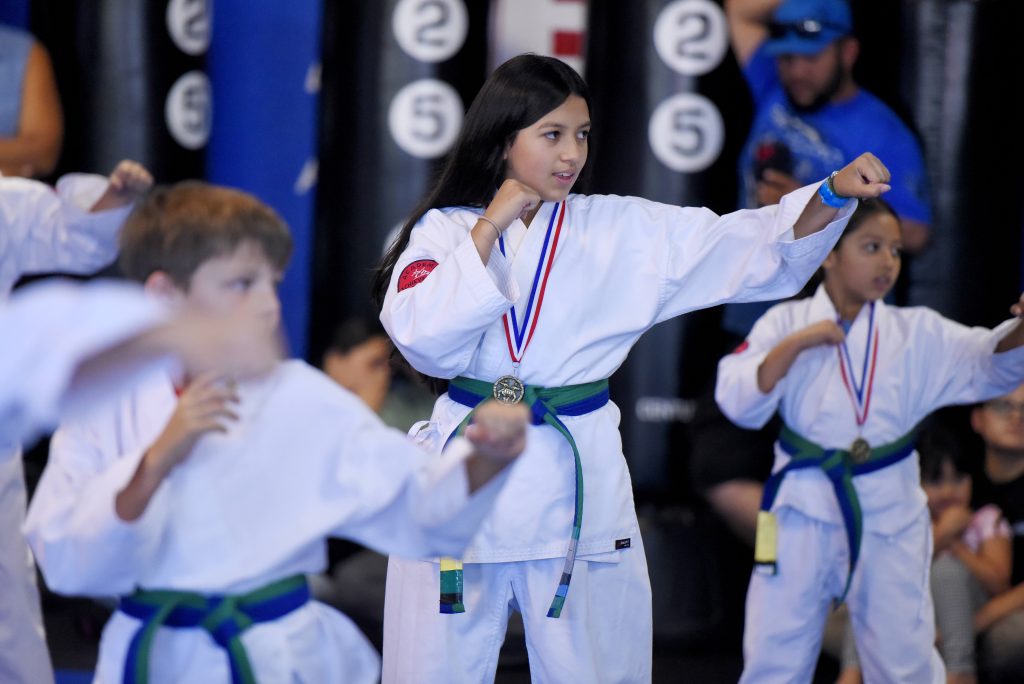Debunking Common Myths About Martial Arts: What Parents Need to Know
Martial arts can be a wonderful activity for children, providing physical fitness, discipline, and valuable life skills. However, some myths about martial arts often make parents hesitant to enroll their kids. Today, we’re tackling those common misconceptions to help you understand why martial arts could be one of the best decisions for your child’s development.
Myth #1: Martial Arts Encourages Violence
One of the biggest misconceptions about martial arts is that it promotes violence. In reality, martial arts teach children discipline, respect, and self-control. The core philosophy revolves around defense rather than aggression. Students are taught to avoid fights, respect others, and only use their skills as a last resort. Through martial arts, children learn that true strength comes from self-restraint and that resolving conflicts peacefully is always the best option.
Myth #2: Martial Arts Is Only for Boys
Many parents mistakenly believe that martial arts is a “boys’ sport,” but this couldn’t be further from the truth. Martial arts are for everyone, regardless of gender. Girls benefit just as much as boys—gaining confidence, physical fitness, and self-defense skills. In fact, many girls find martial arts empowering as it helps them become mentally and physically stronger, proving that they are just as capable of achieving greatness as anyone else.
Myth #3: Martial Arts Is Too Dangerous
It’s natural for parents to worry about their child’s safety. While martial arts involve physical activity, they are generally very safe when taught correctly. Instructors place a strong emphasis on safety, proper technique, and respecting one’s training partners. Protective gear is also used to reduce the risk of injury during sparring or other high-contact activities. Compared to many other sports like football or soccer, martial arts often have fewer injuries because of their controlled environment and focus on safety.
Myth #4: Martial Arts Will Be Too Hard for My Child
Some parents fear that martial arts might be too physically or mentally demanding for their children. While martial arts present challenges, they are designed to be accessible to all skill levels and abilities. A good martial arts academy will tailor lessons to each student’s capabilities, allowing them to progress at their own pace. The structure of martial arts builds confidence over time—teaching students that with perseverance, they can achieve their goals, no matter how challenging.
Myth #5: Martial Arts Is Just About Fighting
Many people think of martial arts as merely learning to punch and kick, but it offers so much more. Martial arts focus on developing character traits like respect, humility, and perseverance. It teaches children to set goals, stay disciplined, and overcome obstacles. These lessons often translate into better behavior at school and at home. The physical skills are only a small part of what martial arts training offers—much of the value lies in the positive character development and lifelong lessons.
Myth #6: My Child Needs to Be Naturally Athletic to Succeed in Martial Art
Some parents assume that their child must be naturally athletic to do well in martial arts, but that’s not true. Martial arts help children develop coordination, balance, and strength—qualities that will improve over time through consistent training. Kids of all shapes, sizes, and ability levels can succeed in martial arts. In fact, martial arts can help children who may struggle in other sports by providing an individualized path to improvement.
Myth #7: Martial Arts Is Too Expensive
Parents may worry that martial arts classes are costly. However, when you consider the benefits—improved focus, discipline, respect, physical fitness, and the development of lifelong skills—the investment is well worth it. Additionally, the positive changes in behavior and confidence can be invaluable for a child’s overall development.
Myth #8: Martial Arts Training Is Only About Individual Achievement
Martial arts is often seen as an individual pursuit, but it also emphasizes teamwork and community. Students practice with partners, support each other during challenges, and celebrate each other’s successes. Many martial arts academies have a strong sense of camaraderie, where children make lasting friendships and learn the importance of helping others. The environment encourages mutual respect and collaboration—both of which are essential for success, not only in martial arts but also in life.
Martial arts can be an incredibly positive experience for children, helping them grow in ways that go beyond physical fitness. From building confidence and discipline to teaching respect and teamwork, martial arts offer a wide range of benefits that debunk the myths some parents believe. If you’re considering martial arts for your child, don’t let misconceptions hold you back—it could be the beginning of a journey that benefits them for a lifetime.
If you’re interested in seeing these positive changes in your child, consider enrolling them at America’s Best Karate in El Paso. We invite you to share your thoughts and experiences in the comments below. For more information on how to find local martial arts schools or to enroll your child, please give us a call at (915) 265-0254 or visit our website at Martial Arts Classes at America’s Best Karate Center (elpasofamilymartialarts.com)
